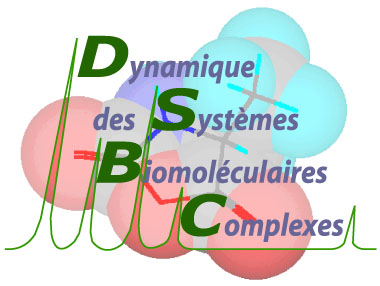Home > Research topics
Research topics in DSBC group
Research activity in the DSBC group is mainly involved in physical organic chemistry and analytical chemistry, mostly of α-amino acids, (poly)peptides and their derivatives. We are especially interested in both (i) a physico-chemical approach of the reactivity of biomolecules and/or their precursors or derivatives, and (ii) the development of innovating separative science methodologies applying to polymers. DSBC research topics are organised according to three main directions, hereafter detailed.
- Taylor dispersion analysis
- Prebiotic & systems chemistry
Related pages :
1. Capillary electrokinetic (CE) separation methods
We are developing all modes of CE methodologies for the characterization of biomolecules, biopharmaceuticals (including vaccine formulations such as mRNA lipid nanoparticles), (bio)polymers, proteins, polyelectrolytes, drug delivery systems, dendrimers, nanoparticles, colloids and bacteria. These modes include free solution and gel-based separations, zone and frontal modes, mobility-shift affinity, micellar / microemulsion modes, isoelectric focusing, isotachophoresis, preconcentration strategies, 2D-separations. We are both interested in fundamentals (separation efficiency, adsorption phenomenon, mobility modeling, electrophoretic behavior) and practical (or industrial) applications of CE. Recent advances include fundamental understanding and practical solutions to maximize separation efficiency and to limit solute adsorption using capillary coatings based on polyelectrolyte multilayers (SMIL). Our expertise is also devoted to the study of biomolecule interactions (stoichiometry and binding constants) including complex molecular systems such as antigen / adjuvant in vaccines, active ingredient / protein or protein / polyelectrolyte.
Keywords:
Capillary electrophoresis ; Molecular interactions ; Capillary coatings ; Adsorption ; Polyelectrolyte multilayers ; Proteins ; Vaccines ; Lipid nanoparticles (LNP) ; Electrophoretic mobility modelling.
People involved:
Permanent staff:
Hervé Cottet (UM Professor),
Joseph Chamieh (UM Associate Professor / MCF),
Laurent Leclercq (CNRS Associate Scientist / CR),
Isabelle Desvignes (UM Associate Professor / MCF),
Jean-Philippe Biron (CNRS Technical Engineer / IE).
Temporary staff:
Laura Dhellemmes (PhD Student / ANR),
Chutintorn ‘Nan’ Somnin (PhD Student / FR/TH grant),
Chirapha ‘Ploy’ Prakobdi (PhD Student / FR/TH grant),
Christina Sejling (Master Student / DK).
2. Taylor dispersion analysis (TDA)
We are developing TDA-based methodologies for the characterization of complex (bio)molecular systems. Advanced data processing of the taylorgrams were developed to extract the size distribution of all detected soluble species contained in the analyzed sample. Modern miniaturized TDA is performed in a capillary with low injection volumes (about nL) and fast analysis (few min). TDA is a straightforward and absolute sizing method which does not require any calibration, nor sample filtration. Developed applications include the sizing of lipid nanoparticle (LNP), the monitoring of aggregative process (such as β-amyloid peptide aggregation), the study of biomolecular interactions (for instance in vaccine formulation) or the characterization of drug delivery systems (such as self-emulsifying drug delivery systems, SEDDS). We are both interested in fundamental and practical aspects of TDA. Recent advances include fundamental understanding and practical solutions to limit solute adsorption, the optimization of operating conditions, and the development of new applications at the interface with biology / biomedical sciences.
Keywords:
Taylor dispersion analysis ; Diffusion coefficient ; Hydrodynamic radius ; Size distribution ; Adsorption ; Proteins ; Vaccines ; Lipid nanoparticles (LNP) ; Microemulsion ; Self-emulsifying drug delivery systems (SEDDS) ; Molecular interactions.
People involved:
Permanent staff:
Hervé Cottet (UM Professor),
Laurent Leclercq (CNRS Associate Scientist / CR),
Joseph Chamieh (UM Associate Professor / MCF),
Jean-Philippe Biron (CNRS Technical Engineer / IE).
Temporary staff:
Laura Dhellemmes (PhD Student / ANR),
Chutintorn ‘Nan’ Somnin (PhD Student / FR/TH grant),
Marta Garrido Álvarez (PhD Student / MESR),
Chirapha ‘Ploy’ Prakobdi (PhD Student / FR/TH grant),
Ruairi McGettigan (PhD Student / MESR),
Harshita Sawdekar (PhD Student),
Patrizia Russo (PhD Student).
3. Prebiotic chemistry, systems chemistry and the emergence of life
Topic formerly granted by the Agence Nationale de la Recherche through the PeptiSystems project (ANR-14-CE33-0020, 2014–2019).
The transition towards the living state is studied through a dynamic approach based on the application of physicochemical principles. The Darwinian description of biological evolution can thus be integrated into a wider view starting from far-from-equilibrium chemical systems including replicators or autocatalytic loops (Systems chemistry). We are involved in the study of thermodynamic constraints governing these dissipative systems capable of giving rise to emergent properties. Concerning the experimental aspect, our team focuses its interest on the chemistry of amino acids with the aim of demonstrating how certain properties (e.g. homochirality) can be selected by the transformation of high-energy derivatives (α-amino acid N-carboxyanhydrides (NCAs) or 5(4H)-oxazolones for instance). Their interaction with nucleotides is susceptible of generating chemical intermediates closely related to the biochemical protein synthetic pathways and then likely to have been involved in the emergence of translation.
Keywords:
Prebiotic chemistry ; α-Amino acids ; Peptides ; α-Amino acid N-carboxyanhydrides ; 5(4H)-Oxazolones ; Peptides/nucleotides co-evolution ; Emergence of homochirality ; Origin of life ; Evolution ; Protométabolism ; Energy sources ; Dynamic kinetic stability ; Complexification
People involved:
Permanent staff:
Laurent Boiteau (CNRS Associate Scientist / CR),
Jean-Christophe Rossi (UM Associate Professor / MCF),
Robert Pascal (CNRS emeritus Senior Scientist / DR ém.)
Temporary staff:
(n/a)



